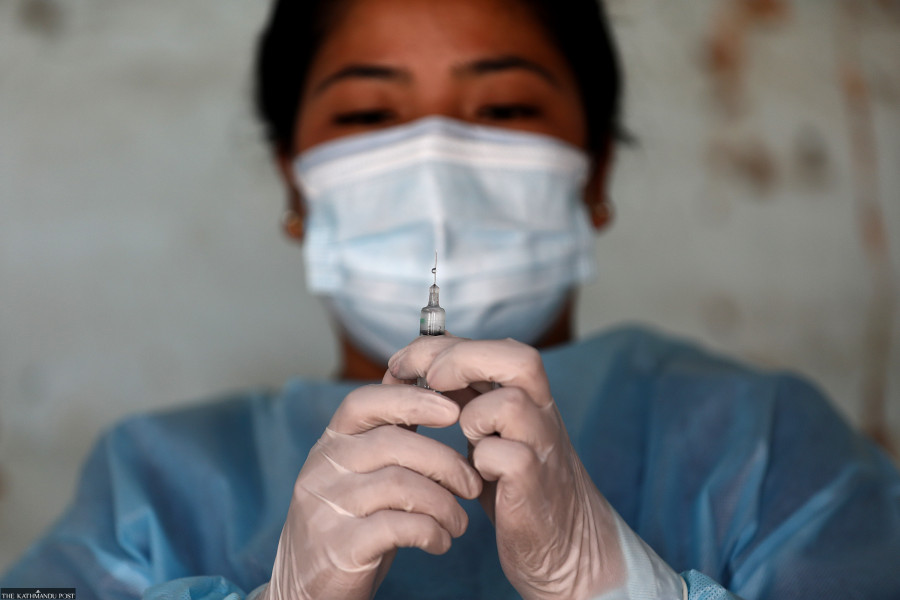Health
WHO refutes claims it has approved mix and match of two different Covid-19 vaccines
The UN health agency says data on the efficacy of mixing vaccines remains limited.
Post Report
The World Health Organisation has said that it has not approved any “mix and match” regimen between Vero Cell and AstraZeneca vaccines.
Issuing a press statement, the UN health agency said that any such claims attributing them to it are false.
“WHO has not issued any such statements and the attribution is false,” reads the statement issued by WHO’s Nepal country office.
The statement follows some media reports about mixing the two types of vaccine, claiming that the UN health agency had approved the same.
“Such misinformation can lead to grave consequences for the public,” said WHO.
Nepal so far has used just two types of vaccine to inoculate its population. The AstraZeneca type vaccine with which Nepal started its vaccination drive is manufactured by the Serum Institute of India under the brand name of Covishield.
The other vaccine that Nepal has used so far is China’s Vero Cell, developed and manufactured by Sinopharm, a Chinese state-owned pharmaceutical company.
Around 1.4 million people aged 65 and above who were given the first shots of Covishield between March 7 and 15 are awaiting their second shots, but the Nepal government has failed to secure enough doses to fully vaccinate them.
Amid this, China recently supplied 1 million doses of Vero Cell under grant. The government is administering the vaccine to people aged 60-64.
Media reports about mixing the two types of vaccine came at a time when a huge chunk of the population is waiting for their second dose.
The UN health agency said that data on the efficacy of the “mix and match” of vaccines remains limited.
“While studies are ongoing regarding the interchangeability between vaccines, more evidence is needed on the interchangeability of a second dose of AstraZeneca with Vero Cell vaccine before conclusions can be made,” reads the statement.
Despite becoming one of the first countries in the world to launch its vaccination drive, Nepal now has hit a snag after the government failed to secure enough doses. Nepal needs to inoculate 72 percent of the 30 million population, or around 22 million people. For this, Nepal needs 44 million doses of vaccine. Of the total requirement, COVAX, an international vaccine sharing scheme backed by the United Nations, had committed to supplying around 13 million doses, enough to vaccinate 20 percent of the population.
But with COVAX itself facing a crisis, it has not been able to supply doses to Nepal, after sending 348,000 doses of Covishield in March.
Officials say an additional 348,000 doses are expected “soon” but there is no clarity on the timeline.
Earlier in January, India had provided 1 million doses of Covishield under grant assistance, with which the government launched the vaccination drive against Covid-19. In February, Nepal paid the Serum Institute for 2 million doses, but the company expressed its inability to supply any more doses after dispatching 1 million doses.
After providing 800,000 doses of Vero Cell in March-end, China provided an additional 1 million doses earlier this month.
So far, just 2.4 percent of the population in Nepal has been fully vaccinated.




 18.12°C Kathmandu
18.12°C Kathmandu














